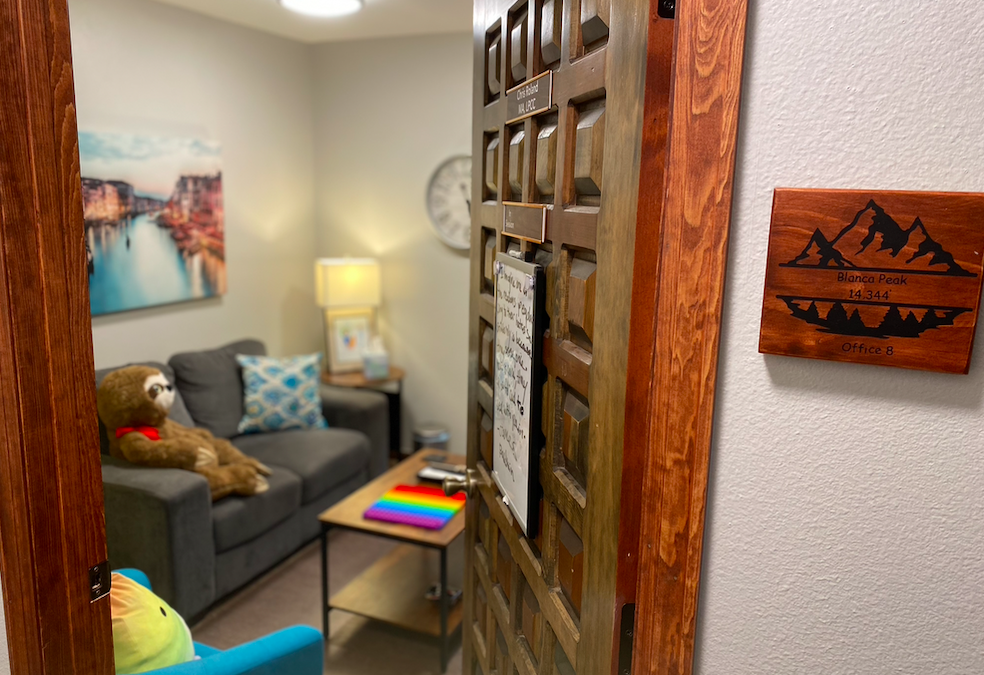Whenever I am asked a question about what I do for work outside of my professional space, I have found a consistent question from parents of, “Where might I start to look for a therapist for my child?”
Professionally, here are some themes that I believe to be important considerations as you navigate the wealth of mental health professionals in the NoCo area.
Experience and Titles
It can be exhausting as a parent to know where to start looking for a therapist.
Whether through Psychology Today or a simple google search, you can be inundated with loads of options and titles such as LCSW, LPCC, LPC, PHD, PsyD, etc.
Experience can factor into the quality of care your child could receive from a therapist. Ultimately, a professional with a PHD in Counseling Psychology will have received more formal educational training than, say, someone currently working on their licensure as an LPCC (provisionally licensed therapist). Beyond just the connection (which I will address in a later section), a therapist’s relevant experience may mean more to you than a degree title.
As an example, some parents may want their therapist to have a background in school social work or school counseling if their child’s primary struggles are
school-related. This can also include relevant age or developmental experience, such as if a therapist has formal training in play therapy for a younger K-6 child. Experience in the field is important, but ultimately, what do you and your child believe would be most relevant to their experiences, and how does that match up to a therapist’s experiences?
Goodness of Fit
…Which leads to the all important goodness of fit. Have you ever considered working with someone who theoretically matches up to your criteria of what you’re looking for in a therapist, but there is just something missing?
Although my experience may match up to what your child is looking for in a therapist, is there a point of relational connectivity that can be cultivated? A good question to ask is, “Can I see myself building a trusting relationship with this person as my therapist?”
You may also find that some therapists provide more of a sense of warmth. Clinical expertise is vital to have in a therapist. You want to feel that your child’s therapist is competent in working with your child, but for true healing work to be done, a sense of warmth and emphasis on the relationship will allow that clinical expertise or experience to do its work.
 Environment
Environment
Do you feel comfortable in the space you’re in? Personally, I love the smell of old books and rich woods.
Does a 13 year-old feel the most comfortable in that space? Maybe not.
Therapy can be a difficult and vulnerable space to be in. Is your prospective therapist’s office inviting?
This may not be your top priority, but it can be something to think about. Some of my clients really enjoy having the option to do walk and talks…The option to interact therapeutically in the outdoors or move as we talk. We don’t always have to be sitting across from each other.
What is your therapist open to?
Shared Identities
Let’s get one thing straight- it is a good thing to ask a potential therapist questions about their background, advocacy roles, community involvement, and relevant attitudes to your child’s experience.
Does your therapist just talk the talk, or do they walk the walk?
As an example, if you are a parent who has a child who is a member of the LGBTQIA+ community, asking your child’s therapist how they show up as an advocate or their attitudes on LGBTQIA+ issues can help you and your child to discern goodness of fit.
Beyond that, a client may feel more comfortable working with someone of a similar or shared cultural background, experience in gender or sexuality, faith-based background, or any number of identities. And that is OKAY!
A question that is interesting to consider, however…is would it be beneficial or present a healing opportunity to participate in a safe relationship with someone from a different background?
It is healthy to be intentional in what you are looking for.

Client and Therapist Feedback
Some Clients, both adults and minors, may be looking for different experiences within therapy. Words that come up for me are direct vs. indirect and process vs. product.
Are you looking to understand the sources of your anxiety or how to respond to it when you are experiencing anxiety? The former would be more representative of a process-driven approach in therapy and the later a product-driven approach. My belief is that any good therapist will be able to discern when is most appropriate between the two.
Coping mechanisms and skills, while important, as a consistent approach may not get to the root of an issue and assist in a client experiencing truly transformative change.
Some clients also prefer to have their therapist be more direct with them or offer more suggestive feedback, but it is my professional belief that this can only be accomplished through a strong therapeutic relationship and a willingness to go deep when appropriate and safely.
Ultimately, individual therapists differ as vastly as human beings do in any profession. With that being said, however, you have a toolbox of points to consider when determining a good fit for your child. Never limit your questions for a prospective therapist! You entrust your children in our therapeutic care.



